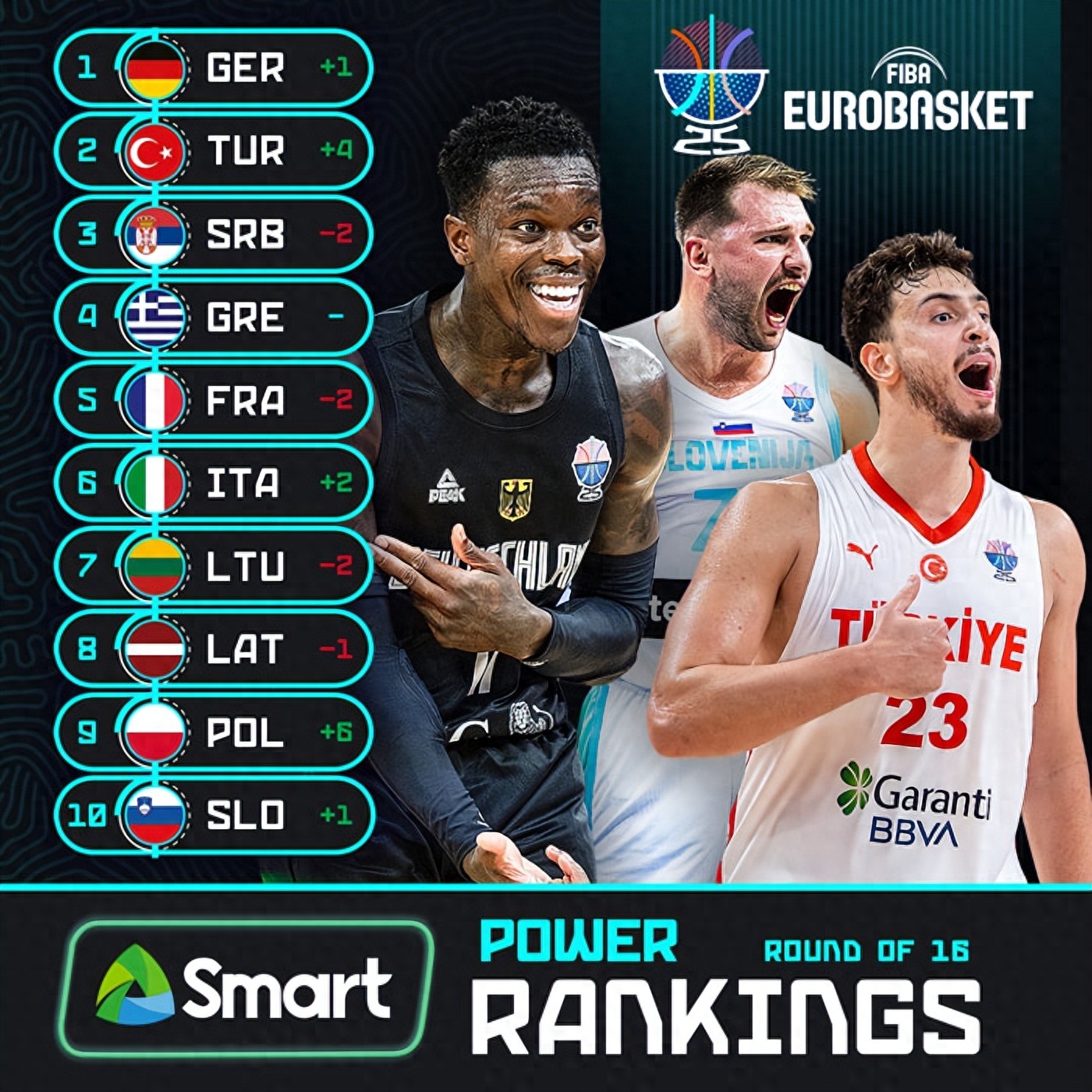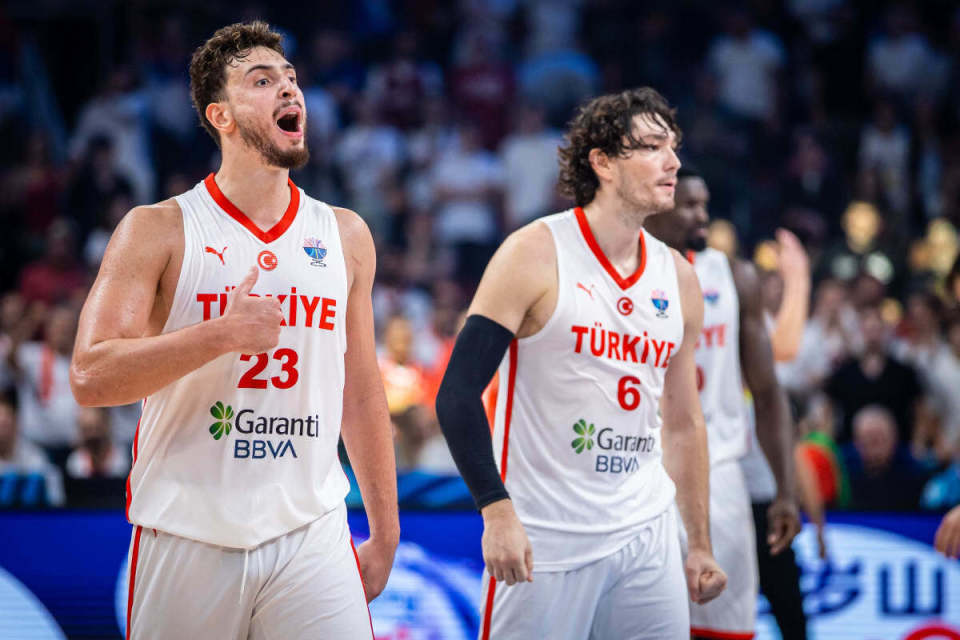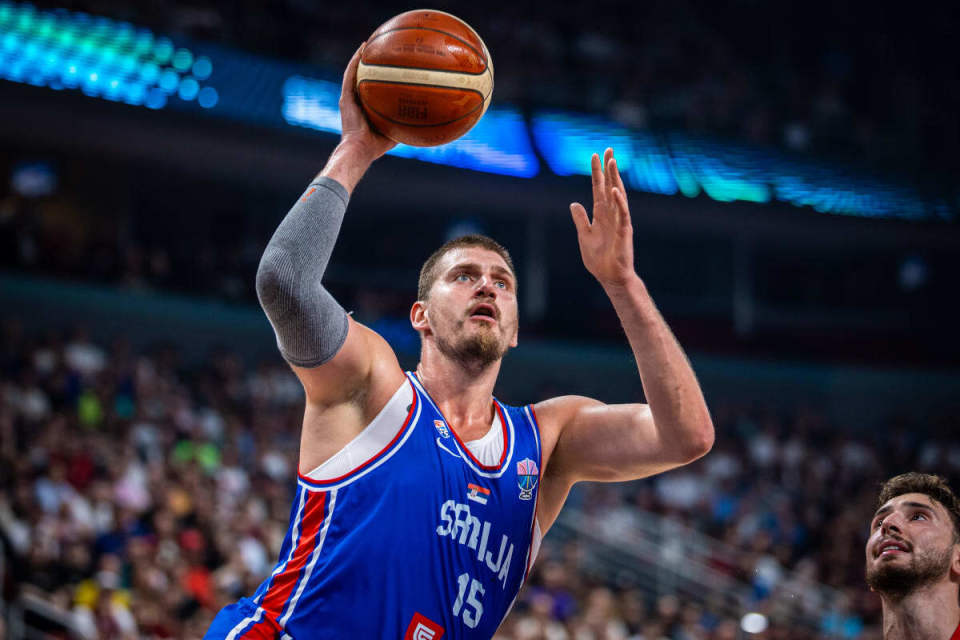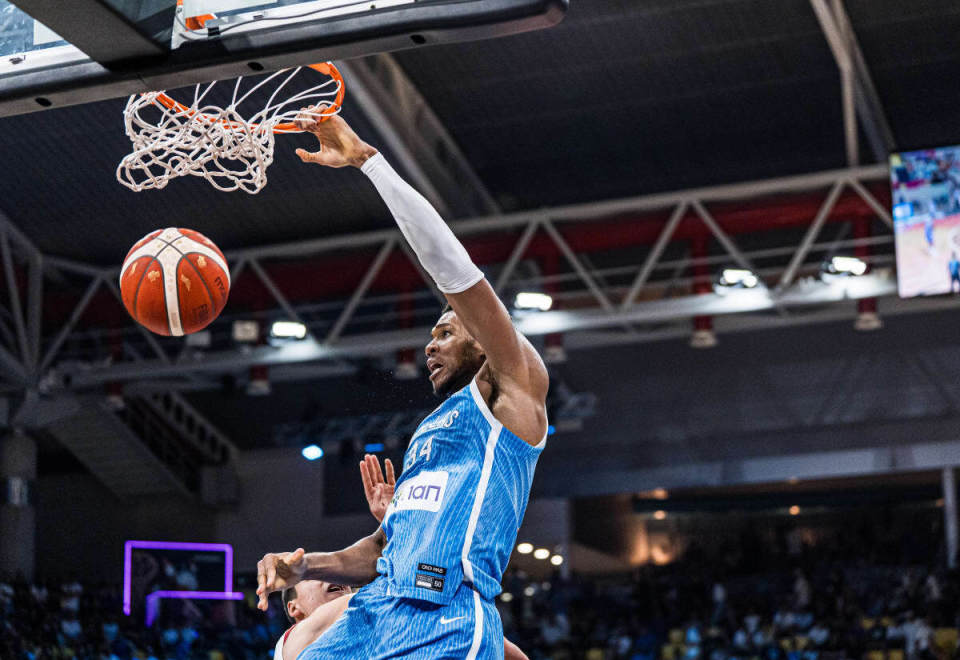The Euro Cup Round of 16 power rankings are out: Germany leads, Turkey surges to 2nd, Serbia drops to 3rd
On September 6th Beijing time, the Euro Cup officially refreshed the Round of 16 power rankings, with Germany moving up to first place, Turkey jumping 4 positions to second, and Serbia dropping from first to third compared to the last ranking of 24 teams. The detailed rankings for the Round of 16 are as follows (changes from the previous ranking in parentheses)—

1. Germany (up 1), 2. Turkey (up 4), 3. Serbia (down 2), 4. Greece (unchanged), 5. France (down 2), 6. Italy (up 2), 7. Lithuania (down 2), 8. Latvia (down 1), 9. Poland (up 6), 10. Slovenia (up 1), 11. Finland (down 2), 12. Israel (unchanged), 13. Bosnia and Herzegovina (up 4), 14. Georgia (up 4), 15. Portugal (up 1), 16. Sweden (up 4)
Below is the official analysis of the top 5 teams in the rankings as well as the popular team Slovenia—
1. German Team (up 1)

Let's start with a set of stats: Germany averaged an impressive 105.8 points per game during the group stage. Do you realize how remarkable this figure is?
In the history of the Euro Cup group stage, only the 1985 Soviet Union team (107.4 points per game) scored higher than Germany. Moving into the knockout rounds, their roster strength becomes even more notable—primarily because head coach Alex Montblanc will return to the bench.
We must also pay tribute to assistant coach Allen Ibrahim, who took full charge of the team’s affairs during the first five group matches and completed his duties successfully.
2. Turkish Team (up 4)

Before the tournament started, officials warned everyone not to underestimate this team. Although Turkey had only a 3-2 record in warm-up games, it was clear that ranking them 6th in the previous list underestimated their true strength.
Shen Jin's performance in the group stage has been highly entertaining, and the "Turkish Big Three" consisting of Shen Jin, Larkin, and Osman contribute nearly 50 points per game with a shooting accuracy of 58%.
3. Serbian Team (down 2)

Serbia lost Bogdan, which is the main reason officials dropped their ranking by two places. Even without this core player, who averaged 18.3 points, 4.0 rebounds, and 3.8 assists during last summer’s Olympics, Serbia still holds a top-three position, demonstrating the great depth of their roster.
4. Greek Team (unchanged)

Admittedly, Greece has some flaws: they could have secured first place in their group more easily, possibly even advancing undefeated.
Even though Giannis only played in 3 of the 5 group matches, Greece maintained highly efficient basketball. They averaged 25 three-point attempts per game, hitting 45.6%—only Turkey had a better three-point shooting percentage.
It’s no wonder Giannis almost achieved his first career triple-double in the Euro Cup, missing it by just one assist, especially since his teammates were all shooting exceptionally well.
5. French Team (down 2)

France’s 69-point loss to Israel sparked many questions. The key issue is whether France has players who can take control offensively and create scoring opportunities when none exist.
Currently, there are two answers: Francisco and Abusale both scored over 30 points in single games during this tournament.
Think that’s not impressive? The last time a French player scored 30+ points in a Euro Cup game was back in 2013—when Tony Parker scored 32 points. Having two players score 30+ points in the same Euro Cup dates back even further to 1989: Richard Dacoury scored 32 against Bulgaria, and Ostrovski scored 31 against the Netherlands.
10. Slovenian Team (up 1)

One thing is clear: although Slovenia lost a few games in the group stage, as long as Doncic maintains his dominant performance, no team wants to face them on the court.
Slovenia will face Italy in the Round of 16. Remember 2023? The two teams met in the FIBA Basketball World Cup 7th-8th place playoff in Manila, where Doncic recorded 29 points, 10 rebounds, and 8 assists.


Wonderfulshortvideo
Who’s the most famous person in Snoop’s phone?


"It's the shhh with a hyphen." More Slovenian lessons 😂


Jaxson Hayes really brought out the eastbay slam 😱


Short… SIKE


This was too tough 💪 💥


Wemby drains the tough middy 🔥


LeBron throws it down! 😤








 Links
Links
 Contact
Contact
 App
App


